CBS is a major American commercial broadcast television and radio network. It functions as the flagship property of the CBS Entertainment Group, which itself is a division of Paramount Global. CBS stands as one of Paramount Global's three flagship subsidiaries, alongside Paramount Pictures and MTV. The network plays a significant role in the entertainment industry and popular culture.
January 1927: United Independent Broadcasters, Inc. Founded
In January 1927, Arthur Judson, a New York City talent agent, founded United Independent Broadcasters, Inc., a radio network in Chicago, which later became CBS.
1927: CBS Founded
In 1927, CBS was founded, it is headquartered at the CBS Building in New York City.
September 1928: Paley Becomes Majority Owner
In September 1928, William S. Paley became the majority owner of CBS, holding 51 percent of the business.
1928: Sale to Isaac and Leon Levy
In early 1928, Judson and Columbia sold the network to Isaac and Leon Levy, as well as their partner Jerome Louchheim. William S. Paley became president and rebranded the network as the Columbia Broadcasting System.
1929: Paramount Pictures Acquires CBS Shares
In 1929, Paramount Pictures acquired 49 percent of CBS.
1932: Paramount Sells Shares Back to CBS
In 1932, due to the Great Depression, Paramount Pictures sold its shares back to CBS, allowing CBS to remain primarily an independent company.
1949: Pillsbury Bake-Off Broadcast on CBS
In 1949, the Pillsbury Bake-Off, an annual national cooking contest, was first broadcast on CBS as a special.
1949: "Loneliness of Evening" Composed
In 1949, the song "Loneliness of Evening" was composed for South Pacific, but it was not performed in that musical. It was later included in the 1965 remake of Cinderella by CBS.
1950: Color Television Demonstrations
In 1950, CBS held some of its first demonstrations of color television in the former Tiffany and Company Building in New York City.
October 20, 1951: Eye Network Trademark Symbol
On October 20, 1951, CBS began using the trademark symbol of an eye, leading to the network being referred to as the Eye Network.
1955: Captain Kangaroo Broadcast
From 1955 to 1982, CBS broadcast the live-action series "Captain Kangaroo" on weekday mornings, and on Saturdays until 1984.
March 31, 1957: Original Broadcast of Cinderella
On March 31, 1957, CBS originally broadcast the musical production of 'Cinderella', with music by Richard Rodgers and lyrics by Oscar Hammerstein II, starring Julie Andrews. It was seen by over 100 million people.
1957: Live Telecast of The Nutcracker
In 1957, CBS broadcast one of the three productions of Tchaikovsky's ballet 'The Nutcracker', specifically the George Balanchine New York City Ballet production, live.
1959: Lou Dorfsman Replaces William Golden
In 1959, Lou Dorfsman replaced the late William Golden and would go on to oversee all print and on-air graphics for CBS for the next 30 years.
1961: Emmy Awards for Young People's Concerts
In 1961, CBS's Young People's Concerts won an Emmy Award. These specials, conducted by Leonard Bernstein, introduced classical music to children.
1963: Miss USA Airs on CBS
In 1963, the Miss USA beauty pageant began airing on CBS.
1964: National Geographic Specials on CBS
In 1964, CBS became the original broadcast home for the primetime specials produced by the National Geographic Society. These specials featured stories on scientific figures.
1965: German-American filmed production of The Nutcracker
In 1965, CBS broadcast a little-known German-American filmed production of Tchaikovsky's ballet 'The Nutcracker' starring Edward Villella, Patricia McBride and Melissa Hayden.
1965: CBS Remake of Cinderella
In 1965, CBS remade the musical production of 'Cinderella', starring Lesley Ann Warren, Stuart Damon, Ginger Rogers, and Walter Pidgeon. The remake included the new song "Loneliness of Evening".
1965: A Charlie Brown Christmas
In 1965, CBS was the original broadcast network home of the animated primetime holiday specials based on the Peanuts comic strip, beginning with "A Charlie Brown Christmas".
1966: Young People's Concerts go color
In 1966, the Young People's Concerts, conducted by Leonard Bernstein, transitioned from black-and-white to color broadcasts. These programs introduced classical music to children through Bernstein's commentaries.
1967: Bob Barker Emcees Miss USA
In 1967, Bob Barker began emceeing the Miss USA pageant on CBS.
1971: Viacom Spun Off
In 1971, CBS spun off its broadcast syndication division, Viacom, into a separate company.
1972: The Price Is Right Production Begins
In 1972, production began for the long-running game show "The Price Is Right", making it the longest continuously running daytime game show on network television.
1973: CBS Special Presentation Opening Sequence
From 1973 to 1990, CBS animated specials began with a seven-second animated opening sequence, with the words "A CBS Special Presentation" displayed in colorful lettering.
1973: The Young and the Restless Debuts
In 1973, "The Young and the Restless" debuted as an hour-long series on CBS Daytime.
1973: National Geographic Specials Move to ABC
In 1973, the National Geographic Specials series moved from CBS to ABC.
1974: CBS Drops Full Name
In 1974, CBS dropped its original full name and became known simply as CBS, Inc.
1975: National Geographic Specials Move to PBS
In 1975, the National Geographic Specials series moved from ABC to PBS, under the production of Pittsburgh member station WQED.
June 1, 1977: Elvis signs deal with CBS
On June 1, 1977, Elvis Presley signed a deal with CBS to appear in a new television special that would videotape his summer concerts.
October 3, 1977: CBS Aired Elvis in Concert
On October 3, 1977, CBS aired the special 'Elvis in Concert', filmed during Presley's final tour, nearly two months after his death.
1977: Soap Operas Schedule
From 1977 to 2009, CBS carried 3 and a half hours of soap operas on its daytime lineup.
1977: Mikhail Baryshnikov's The Nutcracker
In 1977, CBS began broadcasting the Mikhail Baryshnikov staging of Tchaikovsky's ballet 'The Nutcracker', starring Baryshnikov and Gelsey Kirkland. This version became a television classic.
1978: The Kennedy Center Honors Broadcast on CBS
Since its inception in 1978, CBS has been the sole broadcaster of The Kennedy Center Honors, a performing arts tribute.
1981: "Reach for the Stars" Campaign
During the 1981–82 season, CBS launched the "Reach for the Stars" campaign, using a space theme to highlight improvements in ratings and the launch of the space shuttle Columbia.
1982: Captain Kangaroo Broadcast
From 1955 to 1982, CBS broadcast the live-action series "Captain Kangaroo" on weekday mornings, and on Saturdays until 1984.
1982: "Great Moments" Campaign
In 1982, CBS introduced the "Great Moments" campaign, juxtaposing scenes from classic shows like I Love Lucy with current programs like Dallas and M*A*S*H.
1983: "We've Got the Touch" Campaign Begins
From 1983 to 1986, CBS featured a campaign based on the slogan "We've Got the Touch", with vocals by Richie Havens (1983-84) and Kenny Rogers (1985-86).
1984: Captain Kangaroo Broadcast
From 1955 to 1982, CBS broadcast the live-action series "Captain Kangaroo" on weekday mornings, and on Saturdays until 1984.
1986: Carnegie Hall: The Grand Reopening
In 1986, CBS telecast 'Carnegie Hall: The Grand Reopening' in primetime, featuring artists like Leonard Bernstein and Frank Sinatra, commemorating the renovation of Carnegie Hall.
1986: "We've Got the Touch" Campaign Ends
In 1986, the "We've Got the Touch" campaign that started in 1983, ended. Vocals for the campaign were contributed by Kenny Rogers (1985–86).
1986: "Share the Spirit of CBS" Campaign
The 1986-87 season introduced the "Share the Spirit of CBS" campaign, CBS's first campaign to utilize computer graphics and digital video effects completely.
1987: The Bold and the Beautiful Debuts
In 1987, "The Bold and the Beautiful" debuted as a half-hour series on CBS Daytime.
1987: Bob Barker Quits Miss USA
In 1987, Bob Barker quit hosting the Miss USA pageant on CBS over a dispute regarding the use of fur coats as prizes.
1987: "CBS Spirit" Campaign
In 1987, CBS launched the "CBS Spirit" campaign, featuring a swirling blue line representing the "spirit", and showcasing clips from network programs.
1988: "Television You Can Feel" Campaign
For the 1988-89 season, CBS launched "Television You Can Feel", aimed at conveying a more sensual image through computer graphics and emotionally powerful scenes, however this was the season that CBS saw its ratings plummet.
1988: Alan Thicke Hosts Miss USA
In 1988, Alan Thicke succeeded Bob Barker as the host of the Miss USA pageant on CBS.
1988: Garfield and Friends
In 1988, the success of Garfield specials on CBS during the 1980s led to Garfield getting his Saturday-morning cartoon on the network, "Garfield and Friends", which ran from 1988 to 1995.
1989: "Get Ready for CBS" Campaign
During the 1989-90 season, CBS introduced "Get Ready for CBS", an ambitious campaign to improve CBS's ratings and partnered with Kmart for the "CBS/Kmart Get Ready Giveaway".
1989: Dick Clark Hosts Miss USA
In 1989, Dick Clark took over as the host of the Miss USA pageant on CBS.
1990: Animated Specials Remaining on CBS
As of 2011, "Rudolph the Red-Nosed Reindeer" and "Frosty the Snowman" were the only two pre-1990 animated specials remaining on CBS.
1990: "Get Ready" Jingle by The Temptations
For the 1990–91 season, CBS's campaign featured a new jingle performed by The Temptations, which featured an altered version of their hit "Get Ready".
1990: CBS Special Presentation Opening Sequence
From 1973 to 1990, CBS animated specials began with a seven-second animated opening sequence, with the words "A CBS Special Presentation" displayed in colorful lettering.
1992: "This is CBS" Campaign and Four-Note Sound Mark
In 1992, CBS introduced the "This is CBS" campaign with simplified taglines. A four-note sound mark was introduced for the end-of-show network identification sequence.
1992: Sound mark introduction.
In 1992, CBS introduced updated versions of the 1992 sound mark during promotions and production company vanity cards.
1993: Dick Clark's Last Miss USA
In 1993, Dick Clark hosted the Miss USA pageant for the last time on CBS.
1994: Bob Goen Hosts Miss USA
In 1994, Bob Goen began hosting the Miss USA pageant on CBS.
1994: Westinghouse Electric Corporation Acquisition
In 1994, the Westinghouse Electric Corporation acquired CBS.
1995: Garfield and Friends
In 1988, the success of Garfield specials on CBS during the 1980s led to Garfield getting his Saturday-morning cartoon on the network, "Garfield and Friends", which ran from 1988 to 1995.
1995: "You're on CBS" Campaign
In 1995, CBS launched the "You're on CBS" campaign.
1995: CBS Refuses to Air 60 Minutes Segment
In 1995, CBS refused to air a 60 Minutes segment featuring an interview with a former president of research and development for Brown & Williamson regarding tobacco issues.
1995: National Geographic Specials Move to NBC
In 1995, the National Geographic Specials series moved from PBS to NBC.
1996: "Welcome Home to a CBS Night" Campaign
CBS gained momentum with the "Welcome Home to a CBS Night" campaign during 1996–1997.
1996: Bob Goen's Last Miss USA
In 1996, Bob Goen hosted the Miss USA pageant for the last time on CBS.
1996: Westinghouse acquired MaXaM Entertainment
In 1996, shortly after merging with CBS, Westinghouse Electric acquired MaXaM Entertainment, an independent television syndication firm.
1997: Wheel 2000 Premieres
In 1997, CBS premiered "Wheel 2000", a children's version of the syndicated game show "Wheel of Fortune" which aired simultaneously on the Game Show Network.
1997: "Welcome Home" Campaign
In 1997, CBS shortened the "Welcome Home to a CBS Night" campaign to simply "Welcome Home", lasting until 1999.
1997: CBS Corporation Name Adopted
In 1997, Westinghouse adopted the name of the company it had acquired to become CBS Corporation.
September 1998: CBS Kidshow Launched
In September 1998, CBS began contracting the time out to other companies to provide programming and material for its Saturday morning schedule, the first of these outsourced blocks was the "CBS Kidshow".
1999: Viacom Control
In 1999, CBS came under the control of the original incarnation of Viacom, which was formed as a spin-off of CBS in 1971.
1999: "The Address is CBS" Campaign
In 1999, CBS launched the "The Address is CBS" campaign, a spin-off of the "Welcome Home" campaign.
1999: The Insider Film Release
In 1999, the Michael Mann-directed drama film, The Insider, was released. The film was based on the 1995 CBS 60 Minutes segment controversy.
September 2000: Nick Jr. on CBS Launched
In September 2000, after the agreement with Nelvana ended, CBS entered into a deal with Nickelodeon to air programming from its Nick Jr. block under the banner "Nick Jr. on CBS."
2000: HD Conversion of CBS Programming
Beginning with the 2000-01 season, CBS gradually converted much of its existing programming from standard definition to high definition.
2000: Wheel 2000 Premieres
In 1997, CBS premiered "Wheel 2000", a children's version of the syndicated game show "Wheel of Fortune" which aired simultaneously on the Game Show Network.
2000: National Geographic Specials Return to PBS
In 2000, the National Geographic Specials series returned to PBS.
2000: Miss USA Viewership Declines
In 2000, the estimated viewership of Miss USA on CBS dropped to an average of 7 million viewers.
2000: CBS Kidshow Ends
The CBS Kidshow, which started in September 1998, ended its run in 2000.
2000: Peanuts Broadcast Rights Acquired by ABC
Until 2000, over 30 holiday Peanuts specials were broadcast on CBS; the broadcast rights were then acquired by ABC.
January 2001: Launch of National Geographic Channel
In January 2001, the National Geographic Channel, a cable channel, was launched as a joint venture between the National Geographic Society and Fox Cable Networks.
June 27, 2001: The Young and the Restless in HD
On June 27, 2001, 'The Young and the Restless' became the first daytime soap opera to broadcast in HD.
2001: Miss USA Viewership Averages
In 2001, the average viewership for Miss USA on CBS remained around 7 million viewers.
2002: Nick on CBS Launched
From 2002 to 2005, live-action and animated Nickelodeon series aimed at older children also aired as part of the block under the name "Nick on CBS".
2002: Final Pillsbury Bake-Off Broadcast on CBS
In 2002, CBS broadcast the final Pillsbury Bake-Off special, concluding its run on the network.
2002: Miss USA Leaves CBS for NBC
In 2002, Donald Trump brokered a deal moving the Miss USA, Miss Universe, and Miss Teen USA pageants from CBS to NBC.
September 8, 2004: Controversial 60 Minutes episode about George W. Bush's service record
On September 8, 2004, CBS aired a controversial episode of 60 Minutes Wednesday questioning George W. Bush's service in the Air National Guard. The documents used were later found to be not properly authenticated, leading to retractions and dismissals.
2004: FCC Fines CBS for Super Bowl XXXVIII Incident
In 2004, the FCC imposed a record $550,000 fine on CBS for the Janet Jackson and Justin Timberlake incident during the Super Bowl XXXVIII halftime show.
2005: Nick on CBS Ends
From 2002 to 2005, live-action and animated Nickelodeon series aimed at older children aired as part of the block under the name "Nick on CBS", which ended in 2005.
2005: "Everybody's Watching" Slogan
In 2005, CBS's campaign introduced the slogan "Everybody's Watching", leading to the proclamation that it was "America's Most Watched Network".
2005: Viacom Split and CBS Corporation Re-establishment
In 2005, Viacom split into two separate companies and re-established CBS Corporation through the spin-off of its broadcast television, radio, and select cable television and non-broadcasting assets, with the CBS network at its core.
2005: KOL Secret Slumber Party on CBS
In September 2006, KOL Secret Slumber Party on CBS replaced Nick Jr. on CBS with a lineup featuring two new first-run live-action programs, one animated series that originally aired in syndication in 2005, and three shows produced before 2006.
March 2006: Agreement with DIC Entertainment
In March 2006, CBS entered into a three-year agreement with DIC Entertainment to program the Saturday morning time slot.
2006: "We Are CBS" Slogan
In 2006, CBS's campaign introduced the slogan "We Are CBS", with Don LaFontaine providing the voiceover for IDs and promos.
2006: CBS Eye Placed in "Trademark" Position
In 2006, as part of a new graphical identity by Trollbäck + Company, the CBS eye logo was placed in a "trademark" position on show titles, days of the week, and descriptive words.
September 2007: Dan Rather files lawsuit against CBS and Viacom
In September 2007, Former CBS news anchor Dan Rather filed a $70 million lawsuit against CBS and former corporate parent Viacom, contending the story, and his termination were mishandled.
2007: Drew Carey Hosts The Price Is Right
In 2007, Drew Carey became the host of "The Price Is Right", replacing Bob Barker after 35 years.
2007: KEWLopolis Renames KOL Secret Slumber Party on CBS
In mid-2007, KOL, withdrew sponsorship from CBS' Saturday morning block, which was subsequently renamed KEWLopolis.
2008: Super Bowl XXXVIII Fine Annulled
In 2008, a Philadelphia federal court annulled the fine imposed on CBS for the Super Bowl XXXVIII incident.
February 24, 2009: Contract Renewal with Cookie Jar
On February 24, 2009, it was announced that CBS would renew its contract with Cookie Jar for another three seasons through 2012.
September 14, 2009: Joint Venture Deal with Chellomedia
On September 14, 2009, CBS Studios International reached a joint venture deal with Chellomedia to launch six CBS-branded channels in the United Kingdom.
September 19, 2009: KEWLopolis Renamed Cookie Jar TV
On September 19, 2009, KEWLopolis was renamed Cookie Jar TV.
October 1, 2009: Launch of CBS Reality, CBS Drama and CBS Action Channels
On October 1, 2009, it was announced that CBS Reality, CBS Reality +1, CBS Drama, and CBS Action would launch on November 16 respectively replacing Zone Reality, Zone Reality +1, Zone Romantica and Zone Thriller.
2009: Soap Operas Schedule
From 1977 to 2009, CBS carried 3 and a half hours of soap operas on its daytime lineup.
2009: "Only CBS" Campaign
In 2009, CBS introduced the "Only CBS" campaign, highlighting unique qualities of the network.
April 5, 2010: Zone Horror and Zone Horror +1 Rebranded
On April 5, 2010, Zone Horror and Zone Horror +1 were rebranded as Horror Channel and Horror Channel +1.
October 2010: The Talk Debuts
In October 2010, "The Talk", a panel talk show similar to ABC's "The View", debuted on CBS.
October 2011: 60th Anniversary of the Eye Logo
In October 2011, CBS celebrated the 60th anniversary of the introduction of the Eye logo, featuring special IDs of logo versions from previous CBS image campaigns during primetime.
2011: Animated Specials Remaining on CBS
As of 2011, "Rudolph the Red-Nosed Reindeer" and "Frosty the Snowman" were the only two pre-1990 animated specials remaining on CBS.
2011: "America's Most Watched Network" Re-introduced
In 2011, CBS re-introduced the "America's Most Watched Network" slogan alongside "Only CBS".
2012: Zone Channels Rebranded in Israel
In 2012, Zone Reality and Zone Romantica were rebranded as CBS Reality and CBS Drama, respectively, in Israel.
2012: Contract Renewal with Cookie Jar
On February 24, 2009, it was announced that CBS would renew its contract with Cookie Jar for another three seasons through 2012.
January 14, 2013: CNET editor addresses conflict of interest
On January 14, 2013, CNET editor-in-chief Lindsey Turrentine said in a statement that its staff was in an "impossible" situation due to the conflict of interest posed by the lawsuit, and promised to prevent a similar incident from occurring again.
January 2013: CNET disqualifies Dish Network's Hopper for CES award
In January 2013, CBS Interactive disqualified Dish Network's Hopper with Sling from the CES "Best in Show" award due to active litigation, leading CNET to stop reviewing products from companies CBS was in litigation with. The "Best in Show" award was instead given to the Razer Edge tablet.

January 31, 2013: CEA removes CNET's role in CES awards
On January 31, 2013, the CEA announced that CNET would no longer decide the CES Best in Show award winner due to CBS's interference, and the award was jointly awarded to both the Hopper with Sling and Razer Edge.

March 2013: CBS Limits Streaming on iOS App
In March 2013, upon the release of its streaming app for Apple iOS devices, CBS restricted streaming of recent episodes until eight days after their initial broadcast.
July 24, 2013: Agreement with Litton Entertainment
On July 24, 2013, CBS agreed with Litton Entertainment to launch a new Saturday morning block.
September 28, 2013: CBS Dream Team Block Launched
On September 28, 2013, the Litton-produced CBS Dream Team block, aimed at teenagers 13 to 16 years old, began broadcasting, replacing Cookie Jar TV.
October 2013: CBS App Expands Programming Selections
In October 2013, with the release of its Google Play and Windows 8 apps, the CBS streaming app expanded selections to include full episodes of CBS series.
November 2013: Big CBS Channels Shut Down in India
In November 2013, the three CBS-branded channels in India, Big CBS Prime, Big CBS Spark, and Big CBS Love, were shut down.
2013: Network Programming Hours
As of 2013, CBS provides 87 and a half hours of regularly scheduled network programming each week.
October 16, 2014: CBS All Access Announcement
On October 16, 2014, CBS announced the launch of CBS All Access, the first OTT offering by a USA broadcast television network.
October 28, 2014: Launch of CBS All Access
On October 28, 2014, CBS launched CBS All Access, an over-the-top subscription streaming service that allows users to view past and present episodes of CBS shows.
2014: CBS Completes HD Conversion
In 2014, CBS's 14-year conversion to an entirely high-definition schedule ended, with 'Big Brother' and 'Let's Make a Deal' becoming the final two series to convert to HD.
April 7, 2015: CBS All Access on Roku
On April 7, 2015, CBS All Access became available on Roku.
May 14, 2015: CBS All Access on Chromecast
On May 14, 2015, CBS All Access became available on Chromecast.
2015: Miss USA Leaves NBC
In 2015, NBC ended its contract with the Miss Universe Organization after 12 years, amid controversial remarks made by Donald Trump.
September 1, 2016: CBS Remains 4:3 for Graphics
On September 1, 2016, after ABC converted to 16:9 widescreen, CBS and The CW remained the only networks framing promotions and on-screen graphical elements for a 4:3 presentation.
2016: Donald Trump Campaign for the Republican presidential nomination
In 2016, Donald Trump's campaign for the Republican presidential nomination caused controversies.
June 2017: Network Ten Enters Voluntary Administration
In June 2017, Australian free-to-air broadcaster Network Ten entered voluntary administration, with CBS Corporation as the network's largest creditor.
November 2017: CBS Corporation Acquires Network 10
In November 2017, CBS Corporation completed the acquisition of Australian broadcaster Network 10.
2017: CBS Radio Sold to Entercom
In 2017, CBS sold its radio division, CBS Radio, to Entercom (now known as Audacy, Inc. since 2021).
July 2018: Allegations of harassment and gender discrimination at CBS
In July 2018, an article in The New Yorker claimed that current and former CBS employees described harassment, gender discrimination, or retaliation at CBS and six women accused Les Moonves of harassment and intimidation.
September 6, 2018: CBS board negotiates Les Moonves's departure
On September 6, 2018, it was reported that CBS board members were negotiating Les Moonves's departure from the company following allegations of harassment and intimidation.
September 9, 2018: Les Moonves resigns as CBS chief executive
On September 9, 2018, Les Moonves resigned as chief executive of CBS following additional accusations of misconduct that were reported in The New Yorker.
September 24, 2018: CBS Converts Graphics to 16:9
On September 24, 2018, CBS converted its on-screen graphical elements to a 16:9 widescreen presentation for all non-news and sports programs.
December 2018: Launch of 10 All Access in Australia
In December 2018, CBS launched its streaming service in Australia under the name 10 All Access, affiliated with Network 10.
December 4, 2019: Re-merger to become ViacomCBS
On December 4, 2019, CBS and Viacom agreed to re-merge to become ViacomCBS, now known as Paramount Global.
2019: CBS Programming Available in U.S. Virgin Islands
Since 2019, CBS programming has been available in the U.S. Virgin Islands on WCVI-TV in Christiansted.
September 2020: Paramount+ Rebrand Announcement
In September 2020, it was announced that CBS All Access would be rebranded as Paramount+ in early 2021, featuring content from ViacomCBS.
October 2020: Unified Branding Initiative
In October 2020, CBS announced a unified branding strategy to strengthen brand awareness, featuring a "deconstructed eye" motif and a five-note sound trademark.
2020: New logos for CBS News and CBS Sports
In 2020, as part of the rebranding, CBS News began using new logos and imaging incorporating the "deconstructed eye" motif and sonic branding for coverage of the 2020 presidential election.
March 4, 2021: Rebrand to Paramount+
On March 4, 2021, CBS All Access was rebranded as Paramount+.
2021: CBS Sports Rebrand
In 2021, CBS Sports launched its rebrand, incorporating the deconstructed eye motif and sonic branding, ahead of Super Bowl LV.
2021: Corporate Font Change
In 2021, CBS discontinued its use of Didot as its corporate font.
2021: Entercom Rebrands to Audacy, Inc.
In 2021, Entercom, which acquired CBS Radio in 2017, rebranded as Audacy, Inc.
December 2022: CBS News and Stations Deploy New Branding
In December 2022, CBS News and Stations began to deploy the new branding on the local news operations of CBS's owned-and-operated stations.
December 20, 2024: The Talk Ends Its Run
On December 20, 2024, "The Talk" officially ended its run on CBS.
February 24, 2025: Soap Opera 'Beyond the Gates' to Replace 'The Talk'
On February 24, 2025, the new soap opera "Beyond the Gates" is scheduled to replace "The Talk" in CBS's daytime programming lineup.
Mentioned in this timeline

Donald John Trump is an American politician media personality and...
Home Box Office HBO is an American pay television service...
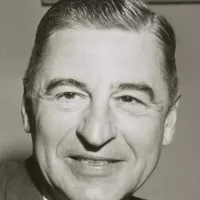
Theodor Seuss Geisel better known as Dr Seuss was a...
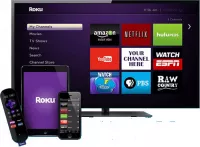
Roku Inc is an American company that owns the Roku...

Google LLC is a multinational technology company specializing in online...
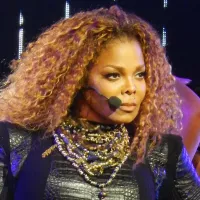
Janet Jackson is a highly influential American singer songwriter actress...
Trending

2 months ago Jared Goff Supports Pistons in Playoff Game Against Knicks at LCA.
3 months ago Maldives bans Israelis in solidarity with Palestinians amid Gaza conflict escalation.
19 days ago Junior Caminero's Hot Bat Fuels Rays' AL East Chase, All-Star Potential Emerges.

13 days ago Idaho Amber Alert: Missing Teens Feared With Polygamist Group In Utah

1 hour ago Lucas Giolito's Dominant Pitching Leads Red Sox to Sweep Rockies, Praises Teammates
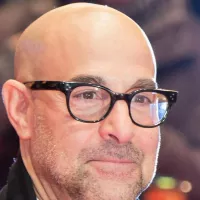
15 days ago Stanley Tucci faces wine tourism criticism; 'Tucci in Italy' gets renewed; trattoria impact.
Popular

Jupiter is the fifth and largest planet from the Sun...

KPop Demon Hunters is a animated musical fantasy action comedy...

Candace Owens is an American conservative and far-right political commentator...

Pam Bondi is an American attorney lobbyist and politician A...
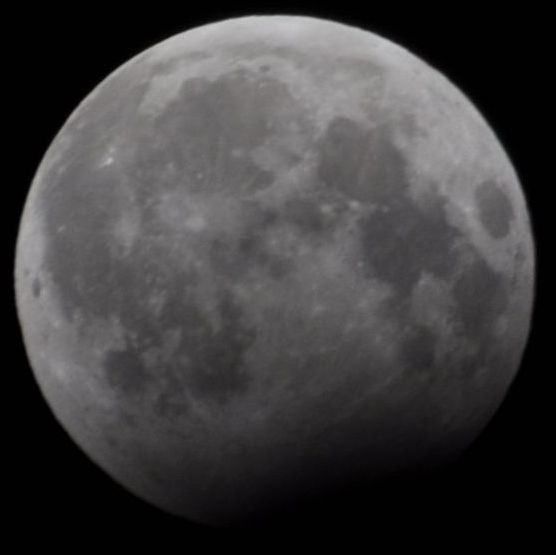
A blue moon is defined in several ways most commonly...
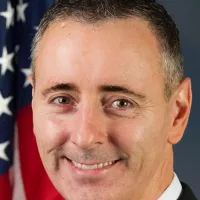
Brian Fitzpatrick is an American politician currently serving as a...
